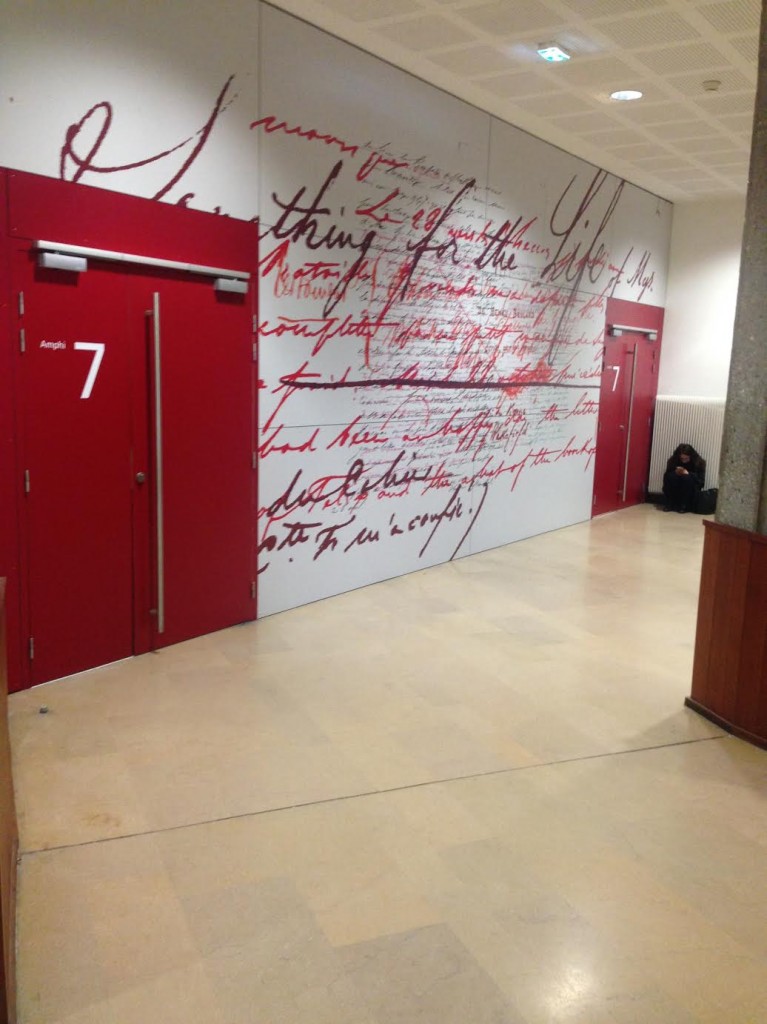This is Emily and Lisa coming to you from the French Alps. Our topic this week covers the differences between attending University in the States and in France. Seven weeks into classes and the first round of midterms past, we feel we’re finally equipped to explain where the deep-seated term studying abroad comes from.
As a precursor to our interpretations and observations, we note that between the two of us we have experienced American curricula of both a small, liberal arts school and a large, public university; at present we’re both attending an international program for language and culture at a public university of roughly 40,000 students. Understandably there will be variation between programs and locations. With that said:
 |
| Stendhal 3: our university here in Grenoble! |
- French universities are most similar to larger state schools in the United States. However, they’re far more dependent on government funding, so local students don’t need to shuck over loads of money to attend; in fact, most students will receive their Bachelor’s equivalent for free.
- With that said, the bar for passing exams is often much higher and students must demonstrate they’re worth the extra euro to continue to attend past their first year.
- Many core classes take place in large auditoriums, sometimes with as many as 50-100 students. (Lisa insists this is an outrageous class size, but Emily has seen much larger lectures and remains un-phased).
- Meanwhile, intense language classes are very comparable to those in the U.S.; class sizes can range from 8-15 students depending on the day and the level.
- Scheduling of classes can… Vary. Due to a variety of reasons, not all well known, daily course schedules may vary by the day, or by the week. A class may be delayed for 20 minutes due to an absent professor, or may not take place at all. Not to worry, classes will always consume the same amount of time, as the professor will happily run late or add an extra course to make up for lost time.
- Language levels follow the European standard; therefore placement exams may reveal results that mean absolutely nothing to you at first. No one, two, or three hundred levels here: A1, A2, B1, B2, C1, and C2 will designate your proficiency once in France. You may imagine them as A. Beginners, B. Intermediate, and C. Advanced, but the presence of smaller divisions in between sufficiently continues to keep the line blurred.
- Grades are different here as well. One receives ‘notes’ indicating their proficiency on a 1-20 point scale. It is left to individual universities to decide the final transfer grade, but generally anything above a 10 is passing.
- And now for the study explanation we’ve all been waiting for: French (and generally European) school systems are hands-off. Most professors will provide daily worksheets or small assignments, but it’s very important that students review class concepts on their own time and check concepts when they’re unsure of their own understanding. Students do not often receive more than one to three grade checkpoints throughout the semester, so maintaining a steady work ethic takes patience and organization.
- As a final note, we might add that learning to take notes in another language, as well as produce oral and written compositions may be one of the more trying experiences of studying overseas. We’re getting the hang of it, but neat notes have almost become a cause for celebration.
 |
| Amphi 7: One of our larger course locations. |
 |
| One of our smaller course classrooms. |
Emily Milton and Lisa Brice are the Fall 2015 CEA MOJO Bloggers in the French Alps, France. Emily is currently a Senior at Iowa State University & Lisa is currently a junior at Baldwin Wallace University.










